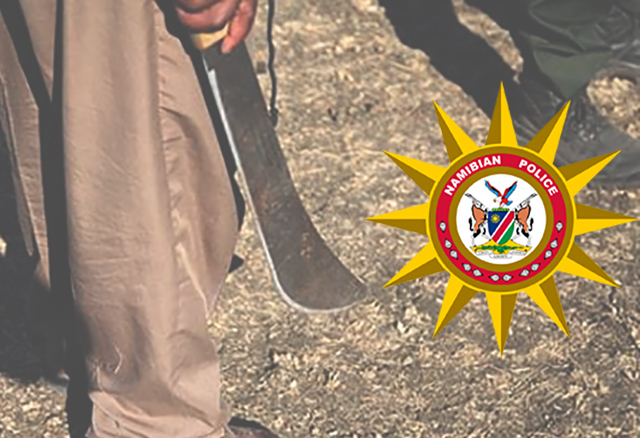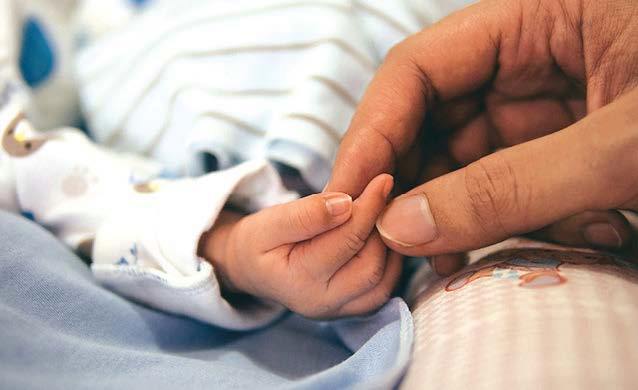A DECISION through which Ovambanderu Paramount Chief Munjuku Nguvauva II removed 11 traditional councillors from their posts in the Ovambanderu Traditional Authority last year was on Friday declared unfair and unreasonable.
Half of the people in the packed public gallery of the High Court broke out in applause and cheers after hearing Judge Collins Parker’s judgement. The case between the 11 traditional councillors and Chief Nguvauva and the Ovambanderu Traditional Authority has deeply split the Ovambanderu community into two opposing camps.In terms of the order with which Judge Parker ended his judgement, Chief Nguvauva and the Ovambanderu Traditional Authority’s decision to expel one of the 11 traditional leaders, Erastus Kahuure, from his position as a Senior Traditional Councillor, and to remove the other 10 leaders from their posts as Traditional Councillors, has been reviewed and set aside.A further decision by Chief Nguvauva and the Ovambanderu Traditional Authority to adopt a new constitution for the Ovambanderu community in October 2005 has also been set aside.Judge Parker ordered Chief Nguvauva and the Traditional Authority to pay the legal costs of the 11 Traditional Councillors who sued the Chief and the Traditional Authority in a bid to be restored to their leadership positions.The case resulted from a decision by Chief Nguvauva to bring a drafting process that was supposed to result in a new constitution for the Ovambanderu Traditional Authority to a sudden halt.After this intervention by the Chief, a new Ovambanderu constitution was adopted on October 1 2005.That decision to end consultations on the new Ovambanderu constitution and to remove the 11 from their leadership positions was against the rules of natural justice, which require a decision that will affect the rights, interests and legitimate expectations of someone must be taken in a fair manner, and that someone who will be affected by a decision must first be given a chance to be heard before that decision is taken, Judge Parker decided.The decision was also contrary to the African customs of lengthy consultation and democracy by consensus, Judge Parker stated.He noted in his judgement: “The constitutional process was initiated at a meeting of the community.It was expected by the community that they would be afforded the opportunity to participate fully in the process by giving their inputs.I do not, thus, find that it is in dispute that the community agreed that the process would include consultative visits by the drafting committee members to the various parts of the community where the drafting committee’s draft would be discussed and community concerns and inputs given adequate and proper airing.It is equally not in dispute that that did not happen.”Only the community assembly could have had the authority to decide to curtail the consultation process around the drafting of the new constitution, Judge Parker stated.The explanation from the Chief and the Ovambanderu Traditional Authority that the consultation process was cut short because of a lack of funds was not a good enough reason, Judge Parker held.He also ruled that even under Ovambanderu customary law, the Chief did not have the authority to curtail the process.The African tradition of going through exhaustive consultations within a community before a decision is taken, as well as “consensus democracy”, dictate otherwise.The result of these customs is that even traditional leaders in African culture are not an autocratic law unto themselves, but must also be held accountable to a set of time-honoured rules, the judgement indicates.Stated Judge Parker: “(I)t is correct to state that the system of voting in order to come to a community decision is alien to traditional African societies, but these societies have their own way of ensuring that decisions of communities are not taken at the whims and caprices of their leaders.”In this case, Judge Parker said, with the Ovambanderu community having agreed on a particular procedure to use for the making of the community’s new constitution, Chief Nguvauva “could not unilaterally sweep aside the decision of the community without giving the people an opportunity to discuss thoroughly what he intended to do – even under customary law”.South African Constitutional Court Judge Albie Sachs has written about the “eminently good African tradition of talking a matter through courteously and reasonably until consensus binding upon all had been reached”, Judge Parker pointed out.He added that this tradition has also been described in this way: “Whatever the nature of the political organisation in any given African country, whether government is by a chief in council or by a council of elders or by the whole mass of the village peasantry, the process of decision-making is through lengthy and unhurried discussion among those present, during which all shades of opinion are given full expression until a consensus emerges.No votes are ever taken.”All of this shows that the argument that Chief Nguvauva has the last word under the Ovambanderu community’s customary law, “cannot detract from the African traditional society’s time-tested system of consensus democracy”, Judge Parker remarked.Harald Geier was the counsel of the Chief and the Traditional Authority’s for the hearing of the case on March 26 and 26.He was instructed by LorentzAngula Inc.Andrew Corbett represented the 11 traditional councillors, on instructions from Dr Weder, Kauta & Hoveka.The case between the 11 traditional councillors and Chief Nguvauva and the Ovambanderu Traditional Authority has deeply split the Ovambanderu community into two opposing camps.In terms of the order with which Judge Parker ended his judgement, Chief Nguvauva and the Ovambanderu Traditional Authority’s decision to expel one of the 11 traditional leaders, Erastus Kahuure, from his position as a Senior Traditional Councillor, and to remove the other 10 leaders from their posts as Traditional Councillors, has been reviewed and set aside.A further decision by Chief Nguvauva and the Ovambanderu Traditional Authority to adopt a new constitution for the Ovambanderu community in October 2005 has also been set aside.Judge Parker ordered Chief Nguvauva and the Traditional Authority to pay the legal costs of the 11 Traditional Councillors who sued the Chief and the Traditional Authority in a bid to be restored to their leadership positions.The case resulted from a decision by Chief Nguvauva to bring a drafting process that was supposed to result in a new constitution for the Ovambanderu Traditional Authority to a sudden halt.After this intervention by the Chief, a new Ovambanderu constitution was adopted on October 1 2005.That decision to end consultations on the new Ovambanderu constitution and to remove the 11 from their leadership positions was against the rules of natural justice, which require a decision that will affect the rights, interests and legitimate expectations of someone must be taken in a fair manner, and that someone who will be affected by a decision must first be given a chance to be heard before that decision is taken, Judge Parker decided.The decision was also contrary to the African customs of lengthy consultation and democracy by consensus, Judge Parker stated.He noted in his judgement: “The constitutional process was initiated at a meeting of the community.It was expected by the community that they would be afforded the opportunity to participate fully in the process by giving their inputs.I do not, thus, find that it is in dispute that the community agreed that the process would include consultative visits by the drafting committee members to the various parts of the community where the drafting committee’s draft would be discussed and community concerns and inputs given adequate and proper airing.It is equally not in dispute that that did not happen.”Only the community assembly could have had the authority to decide to curtail the consultation process around the drafting of the new constitution, Judge Parker stated.The explanation from the Chief and the Ovambanderu Traditional Authority that the consultation process was cut short because of a lack of funds was not a good enough reason, Judge Parker held.He also ruled that even under Ovambanderu customary law, the Chief did not have the authority to curtail the process.The African tradition of going through exhaustive consultations within a community before a decision is taken, as well as “consensus democracy”, dictate otherwise.The result of these customs is that even traditional leaders in African culture are not an autocratic law unto themselves, but must also be held accountable to a set of time-honoured rules, the judgement indicates.Stated Judge Parker: “(I)t is correct to state that the system of voting in order to come to a community decision is alien to traditional African societies, but these societies have their own way of ensuring that decisions of communities are not taken at the whims and caprices of their leaders.”In this case, Judge Parker said, with the Ovambanderu community having agreed on a particular procedure to use for the making of the community’s new constitution, Chief Nguvauva “could not unilaterally sweep aside the decision of the community without giving the people an opportunity to discuss thoroughly what he intended to do – even under customary law”.South African Constitutional Court Judge Albie Sachs has written about the “eminently good African tradition of talking a matter through courteously and reasonably until consensus binding upon all had been reached”, Judge Parker pointed out.He added that this tradition has also been described in this way: “Whatever the nature of the political organisation in any given African country, whether government is by a chief in council or by a council of elders or by the whole mass of the village peasantry, the process of decision-making is through lengthy and unhurried discussion among those present, during which all shades of opinion are given full expression until a consensus emerges.No votes are ever taken.”All of this shows that the argument that Chief Nguvauva has the last word under the Ovambanderu community’s customary law, “cannot detract from the African traditional society’s time-tested system of consensus democracy”, Judge Parker remarked.Harald Geier was the counsel of the Chief and the Traditional Authority’s for the hearing of the case on March 26 and 26.He was instructed by LorentzAngula Inc.Andrew Corbett represented the 11 traditional councillors, on instructions from Dr Weder, Kauta & Hoveka.
Stay informed with The Namibian – your source for credible journalism. Get in-depth reporting and opinions for
only N$85 a month. Invest in journalism, invest in democracy –
Subscribe Now!








